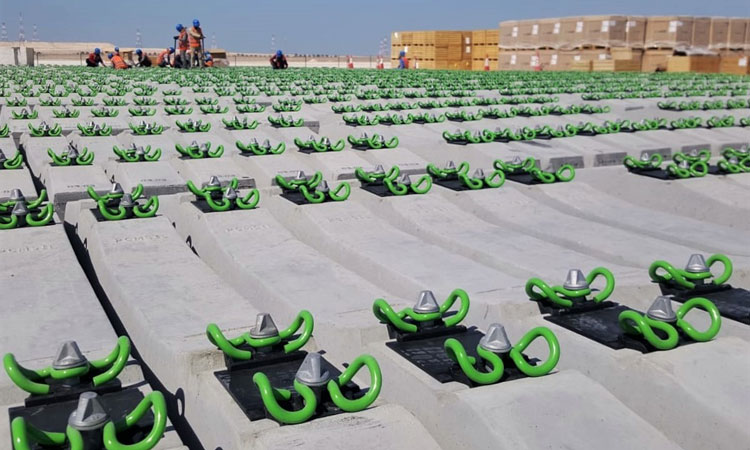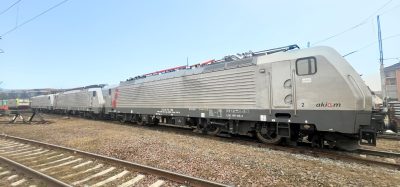Contract for new rail link in United Arab Emirates awarded to Vossloh
Posted: 23 March 2020 | Global Railway Review | No comments yet
Vossloh will be responsible for the supply of turnouts and rail fasteners for Phase Two of the new United Arab Emirates railway construction project.


Following Vossolah’s successful completion of Phase One of the new rail link project in the United Arab Emirates – covering the 264km freight line operated by Etihad Rail between the gas fields at Shah and Habshan and the port and industrial city Ruwais in Abu Dhabi – the company has won the contract for the supply of turnouts and rail fasteners for Phase Two of the railway construction project.
Stage Two will extend 605km from Ghuweifat, on the border with Saudi Arabia, to Fujairah, on the east coast of the United Arab Emirates. Because of its dimension, the standard gauge and (mainly) double-track network will be constructed in a total of five phases. Contracts for mainline civil and track packages will be awarded in geographical alignment with the emirates involved.
The first stage of the second phase of expansion (known as Package 2A) will link Ruwais with Ghuweifat at the border between the United Arab Emirates and Saudi Arabia. Until the end of October 2020, Vossloh will supply a total of 38 turnouts and 495,000 sleeper sets of the rail fastening system, W30HH, for this 139km-long new stretch.
For the project, the specifications of the future integrated Etihad Rail network with mixed-use traffic have already been taken into account. The line is rated for a maximum load of 32.5 tonnes and speeds of up to 160km/h for freight traffic and up to 200km/h for passenger traffic, so the desired cross-border interoperability will be ensured.
The manager of the project is a joint venture of China State Construction Engineering Corporation and South Korea’s SK Engineering and Construction. After the completion of all outlined stages, the volume of goods transported across the network will increase from the current seven million tonnes to over fifty million tonnes per year.
Related topics
Cargo, Freight & Heavy-Haul, Infrastructure Developments, Route Development, Track Construction, Track Systems
Related organisations
China State Construction Engineering Corporation, SK Engineering and Construction, Vossloh








